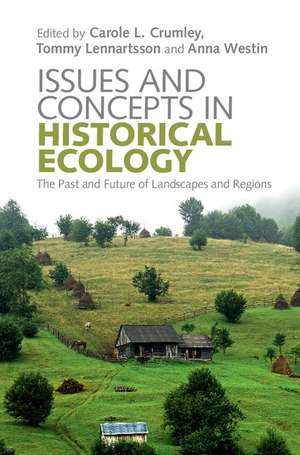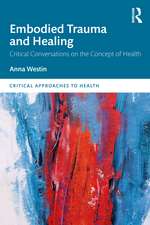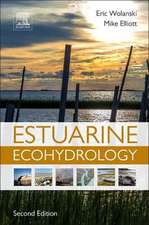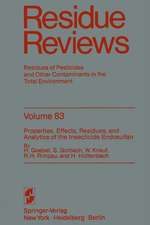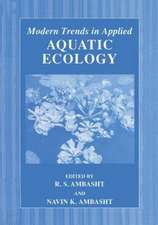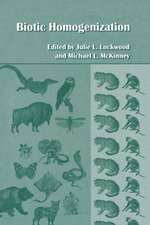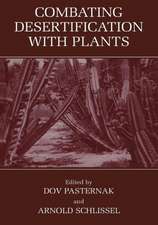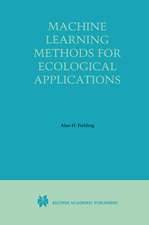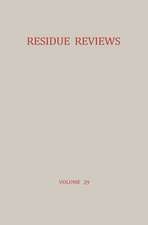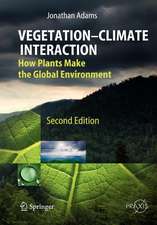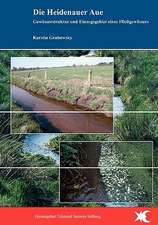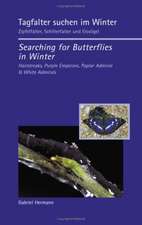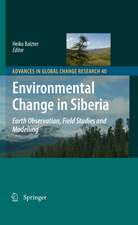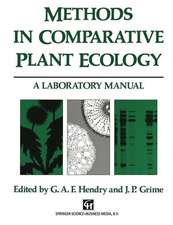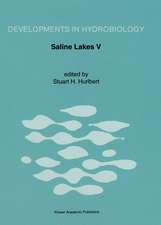Issues and Concepts in Historical Ecology: The Past and Future of Landscapes and Regions
Editat de Carole L. Crumley, Tommy Lennartsson, Anna Westinen Limba Engleză Hardback – 22 noi 2017
Preț: 465.36 lei
Preț vechi: 522.88 lei
-11% Nou
Puncte Express: 698
Preț estimativ în valută:
89.04€ • 93.22$ • 73.68£
89.04€ • 93.22$ • 73.68£
Carte tipărită la comandă
Livrare economică 05-19 aprilie
Preluare comenzi: 021 569.72.76
Specificații
ISBN-13: 9781108420983
ISBN-10: 1108420982
Pagini: 338
Ilustrații: 37 b/w illus. 4 colour illus. 2 tables
Dimensiuni: 157 x 235 x 19 mm
Greutate: 0.67 kg
Editura: Cambridge University Press
Colecția Cambridge University Press
Locul publicării:Cambridge, United Kingdom
ISBN-10: 1108420982
Pagini: 338
Ilustrații: 37 b/w illus. 4 colour illus. 2 tables
Dimensiuni: 157 x 235 x 19 mm
Greutate: 0.67 kg
Editura: Cambridge University Press
Colecția Cambridge University Press
Locul publicării:Cambridge, United Kingdom
Cuprins
List of contributors; 1. Is there a future for the past? Carole L. Crumley, Anna Westin and Tommy Lennartsson; 2. Historical ecology and the longue durée Paul Sinclair, Jon Moen and Carole L. Crumley; 3. Human and societal dimensions of past climate change Fredrik Charpentier Ljungqvist; 4. Rural communities and traditional ecological knowledge Anamaria Iuga, Anna Westin, Bogdan Iancu, Monica Stroe and Håkan Tunón; 5. Baselines and the shifting baseline syndrome – exploring frames of reference in nature conservation Tuija Hilding-Rydevik, Jon Moen and Carina Green; 6. Concepts for integrated research in historical ecology Ove Eriksson, Anneli Ekblom, Paul Lane, Tommy Lennartsson and Karl-Johan Lindholm; 7. Diversity in ecological and social contexts Tommy Lennartsson, Ove Eriksson, Anamaria Iuga, Jesper Larsson, Jon Moen, Michael Scholl, Anna Westin and Carole L. Crumley; 8. How to operationalise collaborative research Elizabeth Jones, Anna Westin, Scott Madry, Seth Murray, Jon Moen and Amanda Tickner; 9. Historical ecology in theory and practice: editors' reflections Tommy Lennartsson, Anna Westin and Carole L. Crumley; 10. Taking research into action in historical ecology Carole L. Crumley; Index.
Recenzii
'Historical ecology has become a master methodology of our time, part of the new holism. This volume explains the how and the why of it. Not only does it offer a critical synthesis with relevant examples, but also a prospectus for likely future developments and applications. The authors bring a wealth of complementary experience and expertise to their task, drawing on different backgrounds to delineate a field of research that is intrinsically and necessarily multi-disciplinary and collaborative. Readers are carefully led through the theoretical connections between an assemblage of intertwined concepts of current and increasing intellectual significance - the Anthropocene and landscape domestication, complexity, memory and local environmental knowledge, shifting baseline syndrome, biocultural diversity, niche construction and co-evolution. Together, these have progressively undermined older 'functionalist' and 'adaptionist' assumptions about how socio-ecological systems really work in the twenty-first century.' Roy Ellen, Centre for Biocultural Diversity, University of Kent
'Crumley, Westin, Lennartsson et al. have made a monumental contribution in this book to interdisciplinary studies bridging nature and society. They have made a significant advance in the framework known as historical ecology, and they show the relevance of the past to our future, by rich examples from throughout the world to illustrate the value of this framework. Drawing from anthropology, geology, archeology, ecology, paleoecology, geography, landscape and heritage management and history, the framework addresses both local and earth system scale dynamics. A major advance in our ways of knowing our planet.' Emilio F. Moran, Michigan State University
'A really well edited and coherent volume that both provides a comprehensive update on the mature and rapidly expanding field of historical ecology and points the way forward to additional applications in archaeology, sustainability studies, and restoration ecology. It makes a strong case for the relevance of the longue durée for modern planners, and firmly places archaeology and environmental history with paleoecology as key elements in any coordinated global environmental change research program. The collaborative mutual editing of the participants adds considerable value and underlines the team building approach of cultural ecology and the editors. A fine work that should be widely read by anyone interested in long term sustainability and the role of past in scenario building for the future.' Thomas McGovern, Hunter College, City University of New York
'… recognizes that pressing environmental issues demand collaborative work between the social, ecological, and physical sciences, the humanities, practitioners, and local and indigenous knowledge … [the authors] offer a flexible framework that informs the historical ecological research process from stages of problem framing to analysis to policy engagement. Richly illustrated, it contributes to building bridges between past, present, and future, knowledge and value systems, local landscapes and global changes … represents a much-needed call for engaging multiple types of evidence needed to examine complexity in human-environmental issues. Grounded on the lived reality of biocultural landscapes from around the world, the historical ecological framework offered by the authors will help to guide collaborative work in ways that are inclusive of multiple evidences and narratives about environmental change. [It] is an outstanding contribution to the social-environmental research community and the global sustainability conversation more broadly, accessible and provocative to scholars, students, and practitioners across multiple fields.' Eduardo S. Brondizio, Indiana University
'This is an invigorating book, full of new ideas and striking arguments. The contributors have worked hard, and successfully, in their attempt to provide a conceptual framework to a vitally important field of intellectual enquiry.' Tom Williamson, The Agricultural History Review
'Crumley, Westin, Lennartsson et al. have made a monumental contribution in this book to interdisciplinary studies bridging nature and society. They have made a significant advance in the framework known as historical ecology, and they show the relevance of the past to our future, by rich examples from throughout the world to illustrate the value of this framework. Drawing from anthropology, geology, archeology, ecology, paleoecology, geography, landscape and heritage management and history, the framework addresses both local and earth system scale dynamics. A major advance in our ways of knowing our planet.' Emilio F. Moran, Michigan State University
'A really well edited and coherent volume that both provides a comprehensive update on the mature and rapidly expanding field of historical ecology and points the way forward to additional applications in archaeology, sustainability studies, and restoration ecology. It makes a strong case for the relevance of the longue durée for modern planners, and firmly places archaeology and environmental history with paleoecology as key elements in any coordinated global environmental change research program. The collaborative mutual editing of the participants adds considerable value and underlines the team building approach of cultural ecology and the editors. A fine work that should be widely read by anyone interested in long term sustainability and the role of past in scenario building for the future.' Thomas McGovern, Hunter College, City University of New York
'… recognizes that pressing environmental issues demand collaborative work between the social, ecological, and physical sciences, the humanities, practitioners, and local and indigenous knowledge … [the authors] offer a flexible framework that informs the historical ecological research process from stages of problem framing to analysis to policy engagement. Richly illustrated, it contributes to building bridges between past, present, and future, knowledge and value systems, local landscapes and global changes … represents a much-needed call for engaging multiple types of evidence needed to examine complexity in human-environmental issues. Grounded on the lived reality of biocultural landscapes from around the world, the historical ecological framework offered by the authors will help to guide collaborative work in ways that are inclusive of multiple evidences and narratives about environmental change. [It] is an outstanding contribution to the social-environmental research community and the global sustainability conversation more broadly, accessible and provocative to scholars, students, and practitioners across multiple fields.' Eduardo S. Brondizio, Indiana University
'This is an invigorating book, full of new ideas and striking arguments. The contributors have worked hard, and successfully, in their attempt to provide a conceptual framework to a vitally important field of intellectual enquiry.' Tom Williamson, The Agricultural History Review
Descriere
This book presents a practical, holistic research framework to help us both understand our past and build an appealing human future.
